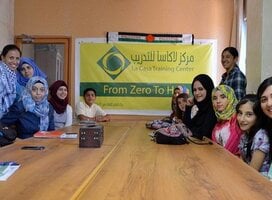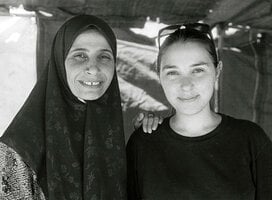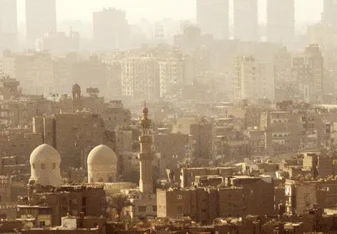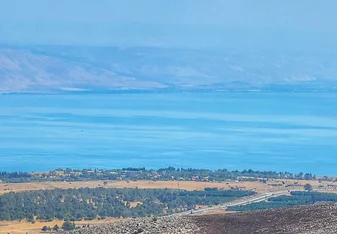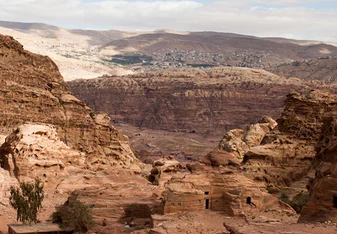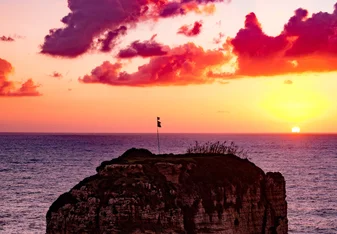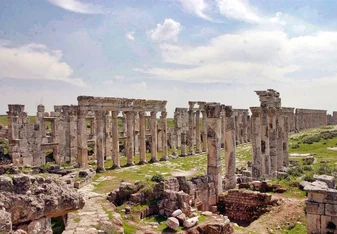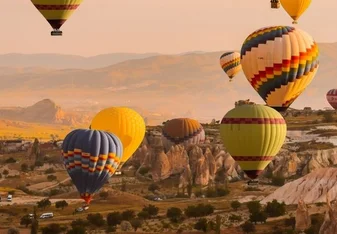Volunteer Programs in Palestine
Popular Volunteer Programs in Palestine
Pagination
About
UPDATE: If you are looking for ways to help the Palestinian people following the recent violence in Gaza, consider donating to a trusted charity. The following well-established organizations are currently operating in the region to provide food, medical care, and psychological counseling to those affected:
In 1947, the United Nations, under the “Partition Plan of 1947” proposed to partition the British mandate of Palestine and divide Palestine into two states: an Arab and Jewish state. Many local Arabs and Arab countries opposed this plan, but the UN voted in favor, which would result in thousands of Palestinian Arabs, Muslims, and Christians who lived in the proposed Jewish state, being displaced or becoming minorities in their homeland.
In 1948, British forces withdrew from Palestine and the State of Israel declared its independence, starting the Arab-Israeli war. During this war, 700,000+ Palestinians were forced to flee and become refugees, as Zionist militia captured 78% of Palestine’s land, despite the UN Partition Plan allotting 56%. The remaining 22% of Historic Palestine was divided into what is now the occupied West Bank and Gaza strip.
This event is referred to by Palestinians as the “Nakba’ which is Arabic for catastrophe. Palestinians who were displaced from their homes and lands were also prevented from returning after the war. An estimated 5.9 million Palestinians are refugees today, as a result of the Nakba.
In June 1967, the West Bank, Gaza, East Jerusalem, and the Golan Heights were occupied by Israel as a result of the Six-Day War. The territories have been under Israeli control since then despite numerous UN resolutions proclaiming the illegality of the occupation. In 2002, Israel began the construction of a security barrier in the West Bank. Opponents of the project argued that it is an attempt to effectively annex land from Palestinians and limit their social and economic freedoms. Despite a 2004 ruling by the International Court of Justice declaring the wall illegal, it still stands to this day.
As of October 7, 2023 there is an ongoing war between Israel and Hamas, a Palestinian militant group.
What is happening in Palestine is extremely complicated and events are ongoing. Today, Palestinians in Gaza are living under Israeli military blockade, making it difficult to receive humanitarian and medical aid. Access to clean water, electricity, and medicine are also limited, making it challenging for civilians to recover and rebuild infrastructure.
Learn more about the history of Palestine:
Program Types
Refugees and Human Rights
The Palestinian territories of Gaza and the West Bank have numerous NGOs working on improving the conditions of refugees and promoting human rights. As a volunteer, you could either choose to combine this project with studies as part of a service-learning project or work directly with an NGO to assist in their mission.
Community Development
Depending on the time of year, volunteers may be involved in leadership and sports programs (summer) or maintaining the local community center by gardening and construction (winter). Administrative tasks such as updating websites and assisting with fundraising applications are also very helpful to the locals.
Teaching English
During school terms long-stay volunteers can teach local Palestinian children English. The Palestinian education system is generally very good and children increasingly have a basic understanding of English. Native English speakers can help these children improve their skills.
Permaculture
Palestinian farmers work in some of the most difficult conditions in the world. Limited water supply, scorching summers, barren land, and economic restrictions imposed by Israel mean that Palestine is increasingly reliant on foreign food aid. Permaculture programs help educate farmers about growing sustainably and maximizing yield and quality with minimal inputs.
Planning Your Trip
Volunteering Tips
When traveling around Israel and the Palestinian territories, you should carry identification at all times, in case the local authorities ask to see it. You should carry photocopies of the date and entry stamp pages of your passport to avoid losing the original.
As a foreigner you are likely to be noticed and many people will call to you as you walk around. This is almost always friendly and well-intentioned although you should be cautious at night, as in any city. Common sense goes a long way.
Women should be aware that they may attract unwanted attention on the street. Generally, this is good-natured and being polite but firm is the best solution. It is important to remember that agreeing to meet someone of the opposite sex for coffee or tea may seem rather casual to western sensibilities, but can mean the beginning of a serious relationship in Middle Eastern cultures. If you are unsure, invite a friend along to avoid misunderstandings.
Establishing and maintaining good relationships with your colleagues and friends is central to getting things done in Palestine. Difficulties can be improved by good relationships.
Volunteers should be aware that during the Muslim holy month of Ramadan eating, drinking, and smoking between sunrise and sunset are forbidden. Although alcohol will be available in some hotels and restaurants, drinking alcohol elsewhere may cause offense. As a courtesy, you may wish to avoid drinking, eating, and smoking in public places in the Palestinian territories during Ramadan.
Be sensitive about taking pictures of people in Muslim and Orthodox Jewish areas and take care not to photograph military or police personnel or installations. Show respect at places of worship - take off your shoes. Women should not enter a mosque without covering their hair. The Arab culture is a very modest culture. Women should not wear shorts or tank tops in public. Public displays of affection are frowned upon by orthodox Jews and Muslims alike.
Health & Safety
Because of the ongoing occupation and the resulting tensions, volunteers should take note of travel advisories issued by various embassies before traveling to Palestine.
For the most up-to-date information, visit the U.S. State Department's travel advisory page for updates on the situation in Israel, the West Bank, and Gaza.






